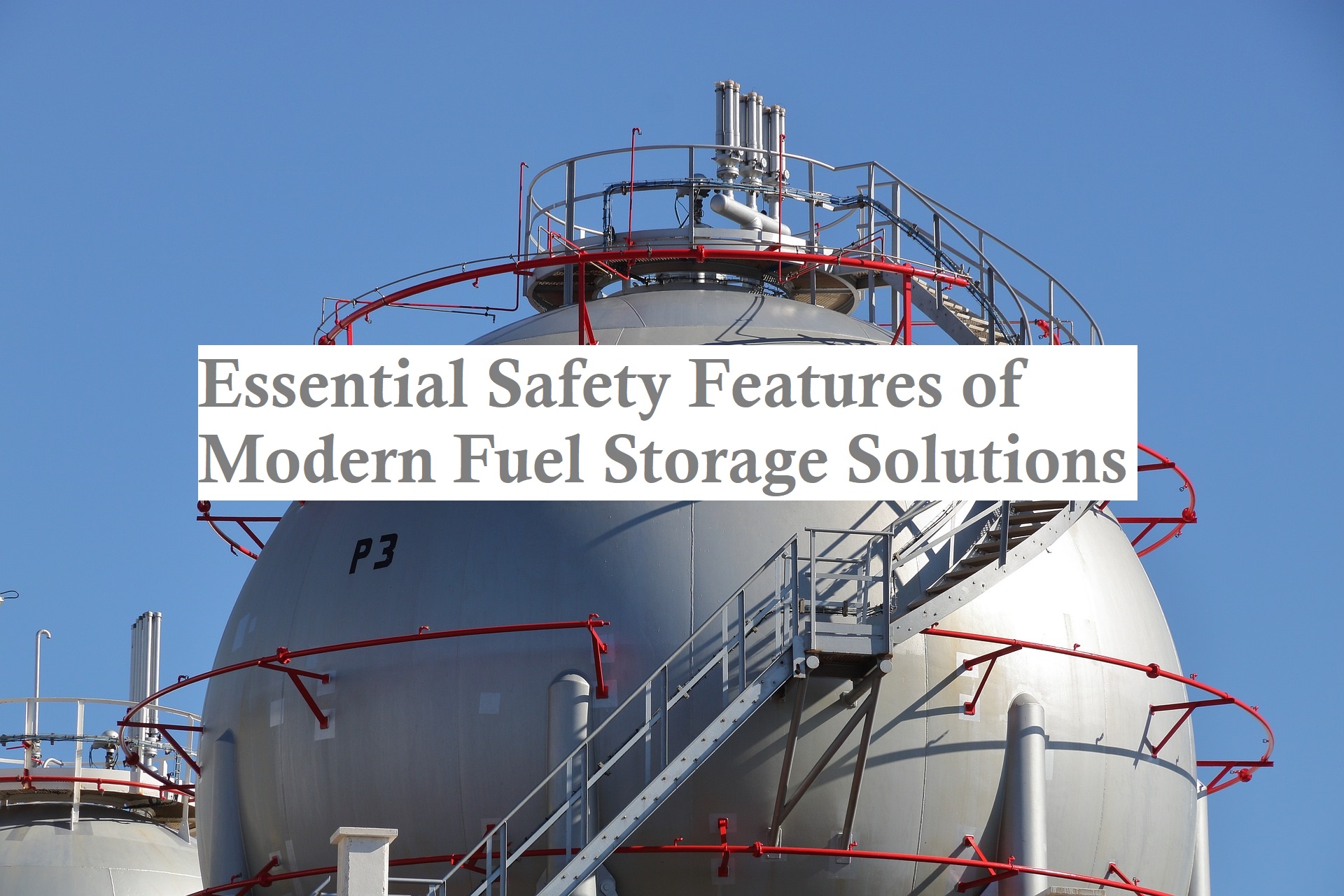
Essential Safety Features of Modern Fuel Storage Solutions
Modern fuel storage solutions are critical in energy infrastructure, ensuring safe and efficient handling of flammable and combustible liquids. With technological advancement and stringent safety standards, these systems are designed to provide the best protection against fire hazards, leaks, and environmental contamination.
Products like Fireguard tanks symbolize the rigorous safety features embedded in modern storage units, making them indispensable in industries where fuel storage is necessary. These tanks are constructed to meet or exceed industry standards, offering robust fire resistance and impact protection.
Understanding Fire Ratings and Impact Resistance
Fire ratings are a fundamental aspect of secure fuel storage. Tanks designed to hold flammable liquids are equipped with materials that can tolerate high temperatures and prolonged flame exposure. This feature ensures that the tank’s structural integrity is maintained in the event of a fire, preventing the spread of fire to surrounding areas. Impact resistance is critical, particularly in locations susceptible to mechanical disturbances.
Ensuring tanks can withstand impacts is crucial for preventing ruptures that could lead to leaks or fires. In addition to fire resistance, the materials used are tested for their ability to handle sudden shocks and stresses without deforming or breaking. Such tests often include drop tests and exposure to simulated environmental hazards, ensuring comprehensive security assessments. Purchasing from a trustworthy online supplier guarantees that the materials used for these tanks are certified and meet all industry-standard fire ratings and impact resistance requirements.
Read: Driving into the World of Cars: Top Picks for Novice Drivers
Dual Containment Systems for Leak Prevention
Dual containment systems are a key feature in modern fuel storage solutions. These systems employ an inner and outer tank structure, where the outer tank is a protective layer if the inner tank is compromised. This design is particularly effective in preventing environmental contamination from leaks, which can occur due to corrosion or physical damage to the primary containment.
Such systems are integral in locations where stringent environmental regulations provide an additional layer of security and compliance. The dual-layer design not only offers a safeguard against leaks but also provides a secondary containment solution that can collect and contain the leakage, helping to dispose or recycle the contained materials safely. Trusted suppliers offer rigorously tested products to ensure they comply with the latest environmental standards, providing dual containment systems that effectively prevent leakage.
Standards and Compliance in Fuel Storage
Compliance with national and international standards is paramount for ensuring secure fuel storage installations. Tanks like Fireguard tanks adhere to recognized standards such as UL-2085 and UL-142, which specify the requirements for fire-resistant and protected tanks. These standards cover everything from the tank’s design and construction materials to its resistance to fire and physical impacts.
Staying compliant enhances security and ensures that the storage solutions meet the legal requirements imposed by safety regulators. It also facilitates easier certification and inspection processes, as adherence to standards streamlines the approval procedures with safety and environmental bodies. A reputable supplier guarantees that all tanks are manufactured in compliance with global safety standards, simplifying the regulatory approval process for their use.
Innovative Materials and Construction Techniques
The development of new materials and construction techniques has significantly enhanced the features of fuel storage tanks. Modern tanks are often made from steel alloys with superior strength and corrosion resistance. Cutting-edge fabrication techniques such as automated welding and precision engineering contribute to the tanks’ robustness, ensuring they are leak-proof and durable.
These technological advancements are crucial for developing storage solutions that can handle harsh environments and volatile substances. Utilizing state-of-the-art materials like corrosion-resistant coatings and composites makes these tanks safer and more durable, providing long-term reliability even under harsh conditions. Reliable online suppliers source the highest quality materials and employ advanced construction techniques to improve the durability of fuel storage solutions.
Monitoring and Maintenance for Longevity
Effective monitoring and maintenance regimes are essential for extending the life of fuel storage tanks and ensuring ongoing safety. Regular inspections are vital to identify potential issues such as corrosion, wear, and seal integrity. Technological aids like sensors can be integrated to provide real-time monitoring of the tanks’ condition, alerting operators to changes that could indicate risks. Scheduled maintenance prevents catastrophic failures and ensures the tanks operate at optimal safety levels throughout their service life. By choosing a credible online provider, you can access advanced monitoring systems and maintenance services to maintain fuel storage tanks’ integrity and longevity.
Modern fuel storage solutions have sophisticated safety features designed to mitigate risks associated with storing hazardous substances. From advanced materials and construction techniques to compliance with rigorous standards, these systems are built to offer resilience against environmental and operational hazards. Continuous innovation and adherence to safety protocols ensure that these storage solutions remain reliable and effective in meeting the needs of various industries while protecting both human lives and the environment.


